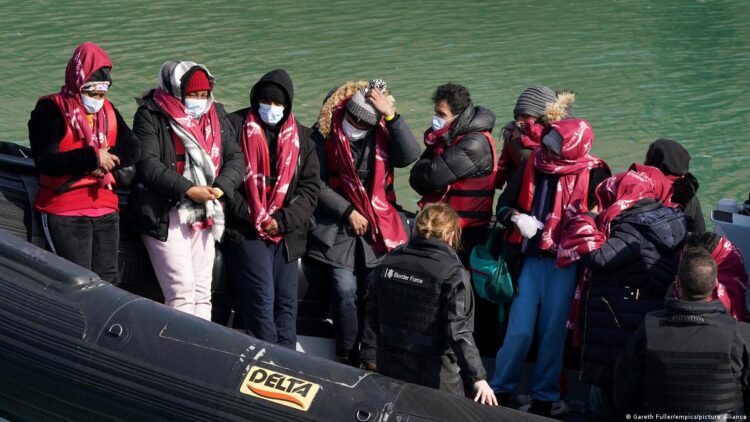By Tony O’Reilly-
The Court of Appeal was right that Riwanda is not a safe country to safe asylum seekers to, given its appalling human rights record.
Britain must continue to make efforts t control its immigration levels, but must equally find another solution to where to put those asylum seekers it does not want in the country.
, Rwanda has made significant strides in this regard since the devastating genocide of 1994 and the government has implemented policies and programs aimed at promoting reconciliation and rebuilding the nation. Over the years, Rwanda has achieved remarkable progress in terms of economic development, social cohesion, and political stability.
However, concerns have been raised regarding political freedoms and human rights in Rwanda. The ruling party, the Rwandan Patriotic Front (RPF), has been accused of suppressing political dissent and limiting freedom of expression.
The claimants comprising a group of 10 refugees and the organisation Asylum Aid successfully argued that the Rwandan legal system would put genuine refugees at risk of being erroneously returned to countries where they would face persecution.
Two out of three judges agreed, finding that Rwanda’s current asylum system is not reliably fair and effective, citing five key reasons:
Instances of harassment, arbitrary arrests, and intimidation of opposition figures and journalists have been reported in the past. These actions raise legitimate concerns about the overall political climate in Rwanda and its impact on the safety of returning asylum seekers.
Asylum interviews are conducted in a brief and perfunctory manner, which could prevent a person from being able to fully explain their case;
Rwanda’s committee to determine refugee status does not allow lawyers to make arguments on behalf of a person, to help explain why they should be granted asylum;
Local non-governmental organisations do not have capacity to provide asylum seekers with legal assistance throughout the process;
Rwandan officials deciding applications do not have sufficient skill and experience to make reliable decisions, partly due to a lack of effective training; and
Judges in Rwanda may be susceptible to political influence and reluctant to overturn decisions not to grant asylum.
Human Rights Records
A critical factor in assessing the safety of returning asylum seekers is the human rights records of the host country. Rwanda has been praised for its efforts to rebuild the nation and improve human rights conditions. The government has implemented policies to enhance access to education, healthcare, and justice for its citizens. Additionally, Rwanda has made significant progress in achieving gender equality and empowering women.
However, despite these positive developments, reports from international human rights organizations have raised concerns about the human rights situation in Rwanda. Issues such as restrictions on freedom of speech, limited press freedom, and allegations of torture and ill-treatment of prisoners have been documented. These human rights concerns suggest that Rwanda may not fully meet the standards required for ensuring the safety of returning asylum seekers.
The judiciary’s independence and fair administration of justice have also been subjects of scrutiny. There have been reports of limited due process, arbitrary arrests, and allegations of torture and ill-treatment of detainees. Concerns have been raised about the ability of individuals to receive a fair trial and access legal representation.
Moreover, there have been instances of restrictions on civil society organizations and limitations on freedom of assembly and association. Human rights defenders and activists have faced obstacles in carrying out their work, and peaceful protests have been met with heavy-handed responses from security forces.
Legal considerations that a judge should take into account when determining whether Rwanda is a safe country to return asylum seekers include:
Non-refoulement principle: The principle of non-refoulement, which is a fundamental principle of international refugee law, prohibits the return of individuals to a country where they would face a real risk of persecution, torture, or other serious human rights violations. The judge must assess whether there is credible evidence to suggest that returning asylum seekers to Rwanda would violate this principle.
Judicial independence and impartiality: The judges would also have have borne in mind the independence and impartiality of the Rwandan judiciary, as well as the ability of individuals to access a fair trial and legal representation. Any evidence of political interference in the judicial process or systemic flaws in the legal system should be considered.
Compliance with international human rights standards: The judge should evaluate Rwanda’s compliance with its international human rights obligations, including treaties and conventions it has ratified. This includes examining its domestic legislation, policies, and practices to ensure they align with international standards.
Rule of Law
The rule of law is a fundamental pillar for assessing the safety of returning asylum seekers. It ensures that individuals are protected from arbitrary detention, violence, and discrimination. While Rwanda has made notable efforts to strengthen its legal system, there are lingering concerns about the independence of the judiciary and the fair administration of justice.
The Court of Appeal ruling that suggests Rwanda is not a safe country for returning asylum seekers adds weight to these concerns. The ruling highlights specific cases where individuals faced a real risk of persecution upon their return to Rwanda. This raises questions about the ability of the legal system to provide adequate protection to those seeking asylum and the potential consequences they may face if forcibly returned.
Implications of the Court of Appeal Ruling
The ruling suggests that there are significant risks that could expose asylum seekers to persecution, torture, or other forms of human rights violations upon their return to Rwanda.
The implications of forcibly returning individuals to a country where their safety and well-being are in question is always critical. Failure to adequately assess and address these risks could result in grave harm to those seeking protection.
Rishi Sunak has vowed to appeal the ruling to the Supreme Court, but if the Court of Appeal has got it right, the Supreme Court will be expected to follow suit as the highest court of the land.




